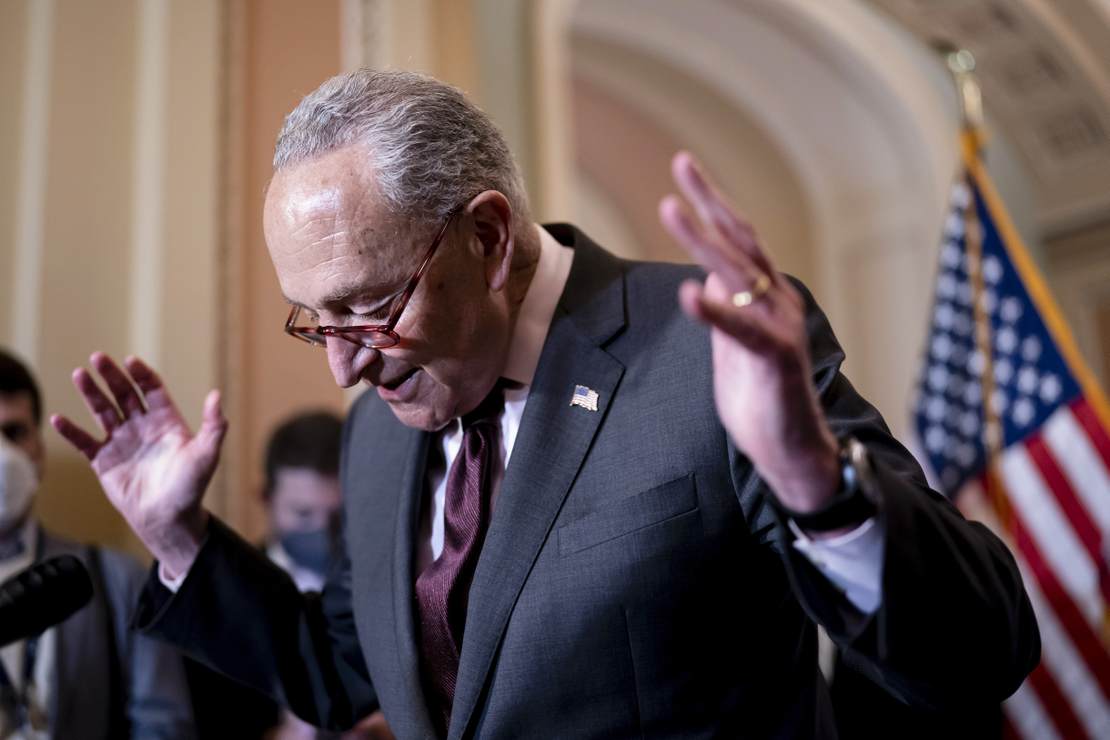
Alternate headline: 88% of voters are much smarter than Washington believes. A new YouGov survey gives Chuck Schumer, Joe Manchin, and now Kyrsten Sinema a vote of no confidence on their new spend-o-rama, especially as a panacea for inflation. Only 12% think the “Inflation Reduction Act” will reduce inflation, while three times as many think it will make inflation worse.
In fact, only one in five Democrats think the title of Schumer’s reconciliation bill is honest:
YouGov Poll: Americans think the Inflation Reduction Act will…
Increase inflation: 36%
Will not change inflation: 23%
Decrease inflation: 12%
Not sure: 29%https://t.co/M5GZio2zHH pic.twitter.com/Gd9C5CrkkL— InteractivePolls (@IAPolls2022) August 4, 2022
This “inflation reduction” pitch has utterly flopped in every demographic. That’s a bad sign in a poll where 56% of respondents say that inflation has had “a lot” of impact on their own lives, and where the only demos that say others are pluralities among Biden voters from 2020 (45/49), Democrats (45/49), and … that’s it. Every other demo has pluralities or majorities feeling a lot of impact from inflation.
READ RELATED: Oscars Are Sunday: I Won't Be Watching
And the only legislation that Democrats are offering now is widely perceived at either not addressing it at all or making it worse. That’s a bad position for Democrats to be in right before the midterms, especially if it passes and inflation keeps going up. As will almost certainly be the case, because the cynicism exhibited here is clearly justified. As the Wall Street Journal reported earlier this week, a Penn Wharton Budget Model analysis showed the impact of the bill as slightly increasing inflation over the next year, and then negligible over the bill’s ten-year arc:
The Penn Wharton Budget Model, which Sen. Manchin has been known to watch, examined the details of Schumer-Manchin and found that it doesn’t contain any net deficit reduction until 2027.
“The impact on inflation is statistically indistinguishable from zero” through 2031, say the Penn Wharton modelers. We don’t agree with those who think deficit reduction leads in a straight line to lower inflation, but that’s what the Democrats claim for their bill. If the first deficit reduction doesn’t come for five years, what’s the help on inflation today?
That doesn’t necessarily make the “Inflation Reduction Act” unpopular, although it’s not terribly popular either. Its individual components are popular enough, especially the Medicare price-negotiation authority it confers, which gets 66/11 approval in this poll. The overall bill gets a 51/31 approval rating, which means it will be at least worth the conversation in the midterms for Democrats.
The popularity misses the point, at least somewhat. Just because certain policies enjoy more popular support doesn’t mean that those are voter priorities in this moment. If Joe Biden and his allies think they’re selling their pitch as inflation busters with this bill, they will be very surprised. And to the extent Democrats keep trying to talk about anything else other than the economy and inflation in this election cycle — especially after the next couple of sets of inflation data hit and the Federal Reserve keeps pounding the economy — that surprise will be unpleasant. Very unpleasant.
Source:





